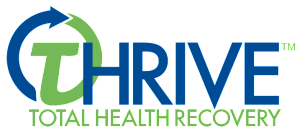The COVID-19 pandemic has lead to increases in depression, trauma, and substance abuse

The August 14th CDC report—“Mental Health, Substance Abuse, and Suicidal Ideation During the COVID-19 Pandemic—United State, June 24-30, 2020”—highlights how symptoms of anxiety disorder and depressive disorder “increased considerably” during the April-June 2020 period, when compared to the same period in 2019. While no comparatives were provided for the substance use data, 13.3 percent of those surveyed reported the initiation or increase in substance use as a means of coping with COVID-19-related stressors.
The survey was designed to be representative of the U.S. population at large according to gender, age, and race/ethnicity, with quota sampling and survey weighting adjustments made to improve representation as needed.
Broken down, survey responses include:
- 9 percent reported at least one adverse mental or behavioral disorder.
- 9 percent reported symptoms of anxiety and/or depressive disorder related to COVID-19.
- 3 percent reported symptoms of trauma and/or stressor-related disorder related to the pandemic.
- 3 percent reported the initiation of, or increase in, substance use as a coping method for dealing with COVID-19 stressors.
- 7 percent reported having serious considerations about committing suicide in the 30 days before the survey.
- 5 percent of those aged 18-24 reported such suicide ideation.
In its “Discussion” of the survey results, CDC researchers noted that the prevalence of anxiety disorder was approximately three times that reported in the second quarter of 2019, while the survey’s depressive disorder came in at about four times the amount reported in 2019.
Suicidal ideation numbers were compared to a similar survey in 2018, with recent survey numbers coming in at about twice that of the previous survey. However, researchers noted that the comparative analysis are limited due to methodological differences and potentially unknown biases in survey design.
CDC researchers also noted that unpaid caregivers for adults—many of whom “are currently providing critical aid to persons at increased risk for severe illness from COVID-19”—had the highest reported incidence of adverse mental and behavioral health conditions. They also were much more likely to have reported having started or increased substance use from May into June. The survey indicates that other distinct population groups being disproportionally affected by COVID-19-related mental health issues and substance use include young adults, hispanics, blacks, and essential workers.

Gulf Breeze Recovery strives to offer the best and most comprehensive alcohol and substance abuse treatment options in the country, with plans of treatment tailored to fit individual needs. Our professional and medical staff are available to meet all your needs for high-quality substance abuse treatment.
If you or someone you care about, has an ongoing history of alcohol or substance use and/or relapse, contact Gulf Breeze Recovery or call: 833.551.2356 to speak to an addiction expert to learn more about their residential program, out-patient program, and intensive out-patient program, and which of these can best fit your individual needs. These programs have helped many people overcome their addiction and embrace their new happy, healthy, substance-free lifestyle.
We help people not just to survive, but to THRIVE!
The COVID-19 pandemic has lead to increases in depression, trauma, and substance abuse

The August 14th CDC report—“Mental Health, Substance Abuse, and Suicidal Ideation During the COVID-19 Pandemic—United State, June 24-30, 2020”—highlights how symptoms of anxiety disorder and depressive disorder “increased considerably” during the April-June 2020 period, when compared to the same period in 2019. While no comparatives were provided for the substance use data, 13.3 percent of those surveyed reported the initiation or increase in substance use as a means of coping with COVID-19-related stressors.
The survey was designed to be representative of the U.S. population at large according to gender, age, and race/ethnicity, with quota sampling and survey weighting adjustments made to improve representation as needed.
Broken down, survey responses include:
- 9 percent reported at least one adverse mental or behavioral disorder.
- 9 percent reported symptoms of anxiety and/or depressive disorder related to COVID-19.
- 3 percent reported symptoms of trauma and/or stressor-related disorder related to the pandemic.
- 3 percent reported the initiation of, or increase in, substance use as a coping method for dealing with COVID-19 stressors.
- 7 percent reported having serious considerations about committing suicide in the 30 days before the survey.
- 5 percent of those aged 18-24 reported such suicide ideation.
In its “Discussion” of the survey results, CDC researchers noted that the prevalence of anxiety disorder was approximately three times that reported in the second quarter of 2019, while the survey’s depressive disorder came in at about four times the amount reported in 2019.
Suicidal ideation numbers were compared to a similar survey in 2018, with recent survey numbers coming in at about twice that of the previous survey. However, researchers noted that the comparative analysis are limited due to methodological differences and potentially unknown biases in survey design.
CDC researchers also noted that unpaid caregivers for adults—many of whom “are currently providing critical aid to persons at increased risk for severe illness from COVID-19”—had the highest reported incidence of adverse mental and behavioral health conditions. They also were much more likely to have reported having started or increased substance use from May into June. The survey indicates that other distinct population groups being disproportionally affected by COVID-19-related mental health issues and substance use include young adults, hispanics, blacks, and essential workers.

Gulf Breeze Recovery strives to offer the best and most comprehensive alcohol and substance abuse treatment options in the country, with plans of treatment tailored to fit individual needs. Our professional and medical staff are available to meet all your needs for high-quality substance abuse treatment.
If you or someone you care about, has an ongoing history of alcohol or substance use and/or relapse, contact Gulf Breeze Recovery or call: 833.551.2356 to speak to an addiction expert to learn more about their residential program, out-patient program, and intensive out-patient program, and which of these can best fit your individual needs. These programs have helped many people overcome their addiction and embrace their new happy, healthy, substance-free lifestyle.
We help people not just to survive, but to THRIVE!
About Gulf Breeze Recovery:
Gulf Breeze Recovery, unlike other treatment centers in Florida, is a non 12 step holistic drug and alcohol rehab that is changing the future of addiction treatment with their THRIVE® (Total Health Recovery) program focused on overcoming chronic relapse.
Gulf Breeze Recovery’s THRIVE® program is a non 12-step approach designed for those who are looking for a drug and alcohol treatment program to produce a different and positive result.
This non-12 step program allows you to drive beyond your addictions and promotes a new outlook on life.
We are licensed by the Florida Department of Children and Families, and our last audit scored 99.7! Also, we are gold certified by the Joint Commission.
Want to read more about Gulf Breeze Recovery’s non 12 step, holistic drug and alcohol rehab? Check out some of our latest posts:
Researchers Identify Role of Key Brain Signaling Protein in Alcohol Use Disorder
January 29, 2021
College Students Who Returned Home Due to Pandemic Drinking Less
January 29, 2021
Overdose Deaths Soar in the Midst of a Pandemic
January 27, 2021
Alcoholism Today in Seniors and Younger Generations
January 20, 2021
End Chronic Relapse and Start a New Life!
At Gulf Breeze Recovery we don’t want you to have just a great recovery, we want you to have a great life!











